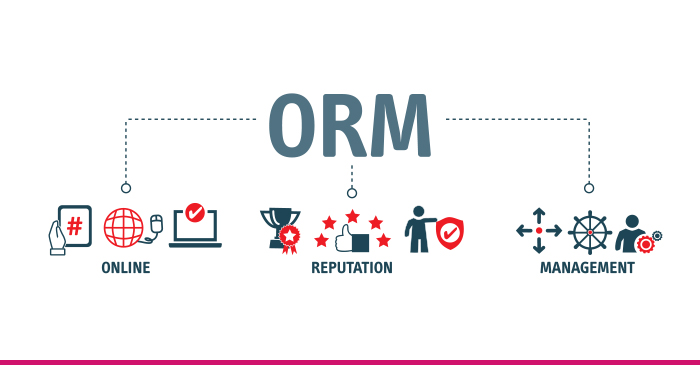What are Internet Forums?
Online forums are platforms where users can communicate with each other, share ideas, learn the latest news, and even organize fundraisers. These forums are different from conventional text messaging as one can write longer passages in comparison, and communication is not necessarily spontaneous.
These texts may be temporarily archived and viewed by all active users on the site. They have incredibly high user traffic since they use KGR keywords that are essentially derived from internet users. Their queries and searches are analyzed to extract keywords that have been input frequently. The search engine redirects the user to the forum that utilizes these keywords densely.
You may have noticed how Quora seems to be high on the list of forums ranking to the extent that every time you have a question, Quora almost always shows up on the first search page. This successful ranking is attributable to their efficient use of KGR keywords.
What are Keyword Golden Ratio Keywords?
Keyword Golden Ratio or KGR keywords are less competitive than their long-tail counterparts, yet still have high search volumes. Using the KGR with your keywords can give you much more specific results, increasing traffic and conversions. You can use these keywords to out-rank your competitors. Remember that the higher your KGR score, the higher your chances of ranking on Google.
KGR keywords can rank in the top 50 positions on Google within a few days of being published. The Keyword Golden Ratio is based on the number of Google “allintitle” results that contain your chosen keywords. You’ll want to find keyword phrases with low competition, because this way, you’ll have fewer competitors and a better chance of ranking on Google.
It is important to understand that this method doesn’t always work. If you’re new to the SEO game, you’re probably looking for quick wins and low competition. KGR is an important data-driven technique that can help you find low-competitive keywords that aren’t too common.
The Keyword Golden Ratio is a great SEO strategy for beginners. If you’re new to SEO, the KGR method can provide you with free traffic before Google sandboxes your site.
How to Find Keywords that Rank Forums?
According to Statista, Reddit has an estimated 48 million active monthly users. Using KGR keywords is the best way to optimize SEO, boost organic traffic to your website, and enhance affiliate site revenues. The use of KGR keywords that are not being used as often by your competitors can help you rank in the top 50 within a short time.
Finding keywords that rank forums is easier said than done. If you want a high place on the global forums ranking list for your website or if you are thinking about launching a brand new forum, you can use the following tips.
1) Finding Keywords for Your Forum
If you know your topic well enough, landing on the best forum will be easy. Even if you don’t, the easiest way to do so is to make search combinations using your topic with the forum name, or your keyword and forum name. This tactic will help you find the best forums and see if they have answers to what you are looking for.
2) Using Relevant Forums
It is much safer to find a forum hosted on a Top-Level-Domain (TLD) instead of a subdomain. TLDs help recognize elements of a website, such as its purpose, ensuring that you find the perfect forum for your needs. If you are an experienced forum user, you will already have a rough idea about forums that are bound to have answers to your questions from prior results.
3) Using Forum-finding Applications
Many applications having a similar keyword data tool can be used to find keywords that rank forums. Some require money for use, but free alternatives are also available online. However, the data obtained from the paid version of applications is worth the cost.
So if your budget allows it, consider signing up for a month and then later unsubscribe to any application that can help you reach a definitive list of search results according to forum rankings by using the KGR keywords in your searches. You can accurately find whatever you are looking for on the web and reach the best forum for it. This is the reason why forums like Quora appear on the front page whenever you type in a question.
To use such applications, first, you must enter your query and search, find where it mentions ‘keywords’, and choose that option. Some applications even allow you to sort keywords in positions.
4) Common Sense Goes a Long Way
Focus on the top five resulting keywords in the list matching your search results in forum-finding applications, expand your range if necessary, analyze those keywords, and choose the ones that suit your requirements.
Using common sense is also essential. You must understand that not everyone is an English major. Therefore, keep your language simple and easy to obtain good forum rankings. For example, instead of searching ’causes of my feet aching,’ search ‘why does my foot hurt?’
Finding these keywords that rank forums will lead to a pleasant browsing experience and quick answers to your questions.
Learn More: 6 Tips on Improving Search Engine Positioning of Website
5) Taking Help from Social Media
Using social media applications, like Facebook and YouTube, is another way of finding keywords that rank forums. Groups found on such apps are a great place for content and ideas, with most people finding Reddit via YouTube. In most cases, people ask questions there if Google fails them. Hundreds of posts get uploaded daily to these groups, making them gold mines for content ideas.
6) Using Websites to Find Keywords
The best free keyword tool for many is Google itself. To use this, you need to have a Google Ads account, which will take a few seconds to create if you already have a Google account. After this, find the Keyword Planner, select Discover New Keywords, and enter the seed keyword to get suggestions. A seed keyword is a short-tail keyword, having one or two words. After you search, you will get a list of all the related keywords.
You can also use sites like Answer the Public. You just need to type in your keyword and select your country of residence on the homepage. Next, the application generates a graphic to represent all the questions related to your search and keywords and offers the best forum ranking to enable you to reach the best source of answers to your questions. Ideally, if a forum ranks between 1 to 3 words of your search, you are on the right track but could do much better.
7) Frequency and Volume
Some KGR keywords are used very frequently, by users and forums, alike. Although using these keywords is of the essence, they may not always bring you the best results. This is because such keywords are ‘competitive keywords’, meaning that they match up with so many forums that your search results will provide you with multiple options that rank high, but are not always the best source of obtaining the desired information.
Hence, volume is not a guarantee of success, and alternative keywords must be kept in mind. For example, if you want medical information, using common words like ‘why is my neck scratchy’ is not always going to get you expert medical advice forums. Using alternatives like ‘why does my throat feel sore’ and ‘why does it hurt when I swallow’ are viable alternatives that must be used as well.
Conclusion
Forums are now high-traffic platforms. Most viewers seek their answers, assistance, and suggestions from forums like Reddit and Quora like Gospel. Therefore, one must utilize the best keywords that rank forums so that one can reach the top sources to procure information and get guidance on anything. Contrary to popular belief, Google is not God. Hence, forums come to the rescue when popular alternatives fail.
If you want help and technical expertise on anything and everything related to content marketing and writing, visit One Content Pro. You can get expert help on creating profiles, running businesses, graphic and website designs, LinkedIn profiles, and miscellaneous digital ventures to succeed in business.












